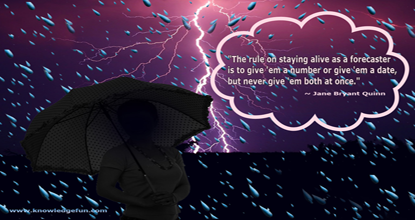Helpful Info in PDF Format
Confronting Climate Change: Avoiding the Unmanageable and Managing the Unavoidable - Global climate change, driven largely by the combustion of fossil fuels and by deforestation, is a growing threat to human well-being in developing and industrialized nations alike. Significant harm from climate change is already occurring, and further damages are a certainty. The challenge now is to keep climate change from becoming a catastrophe.
Canada's Marine Coasts in Changing Climate - Coasts are an important component of the Canadian identity, economy and culture. Fronting on three oceans— Atlantic, Arctic and Pacific—Canada’s coasts, the longest in the world, are diverse and dynamic regions whose biodiversity, beauty and resources contribute to the country as a whole. The impacts of climate change on Canada’s coasts, which extend far beyond changes in sea level, present both challenges and potential opportunities for coastal communities, ecosystems and economic activities. How we adapt to the coming changes will be critical to the sustainability and continued prosperity of Canada and its coastal regions.
How Will Climate Change Affect Alaska? - Climate change means shrinking glaciers, receding sea ice and thawing permafrost in Alaska. Alaska has warmed twice as fast as the rest of the country. Over the past 60 years, Alaska has warmed more than twice as fast as the rest of the United States. Average annual temperatures have increased by 3 degrees Fahrenheit and average winter temperatures by 6 degrees Fahrenheit.
Plant Health and Environmental Protection - International travel and trade can quickly spread plant pests and diseases around the world causing great damage to plants and the environment. At the same time, climate change is altering ecosystems and creating new niches where pests and plant diseases can thrive. The combined effect of human activities and climate change puts enormous pressure on the environment and consequently on plant health, agriculture and the food systems we depend on.
Pollinators - About twenty thousand (20 000) different species of wild bees exist. Some species of butterflies, moths, wasps, beetles, birds, bats and other vertebrates also contribute to pollination. 90% wild flowering plants depend at least to some extent on animal pollination. 75% world’s food crops depend at least in part on pollination.
Protect Your Lungs from Wildfire Smoke or Ash Wildfire smoke and ash can irritate your eyes, nose, throat, and lungs. They can make you cough or wheeze, and can make it hard to breathe. A respirator is a device (mask) that covers your nose and mouth, fits tightly to your face, and can filter out smoke or ash particles before you breathe them in. Respirators are not sized for children.
Secondary Pentobarbital Poisoning of Wildlife - Euthanasia by sodium pentobarbital injection is a humane way to end the life of a suffering animal, and is recommended for many species by the American Veterinary Medical Association (AVMA) Panel on Euthanasia.1 Ironically, this compassionate act can sometimes have the unintended consequence of causing the premature death of other animals.
Use of Croplands for Biofuels - Most prior studies have found that substituting biofuels for gasoline will reduce greenhouse gases because biofuels sequester carbon through the growth of the feedstock. These analyses have failed to count the carbon emissions that occur as farmers worldwide respond to higher prices and convert forest and grassland to new cropland to replace the grain (or cropland) diverted to biofuels. By using a worldwide agricultural model to estimate emissions from land-use change, we found that corn-based ethanol, instead of producing a 20% savings, nearly doubles greenhouse emissions over 30 years and increases greenhouse gases for 167 years. Biofuels from switchgrass, if grown on U.S. corn lands, increase emissions by 50%. This result raises concerns about large biofuel mandates and highlights the value of using waste products.
Arsenic in Drinking Water - Arsenic is a natural element found widely in theearth’s crust. It may be found in some drinkingwater supplies, including wells. Exposure to highlevels of arsenic can cause health effects.
Ellyn Satter’s Division of Responsibility in Feeding - Mealtimes can sometimes become a battleground where parents and children struggle for "control." To prevent a power struggle at your table, consider using Ellyn Satter’s recommendations for dividing responsibility.
Ellyn Satter’s Normal Eating
Ellyn Satter’s - The Joy of Eating
Ellyn Satter’s - Mastering Meals Step-by-step

Supplements and Anesthesia - Find out what should know about herbal and dietary supplement use and anesthesia.
Testing Treatments - Aimed at both patients and professionals, Testing Treatments builds a lively and thought provoking argument for better, more reliable and more relevant research with unbiased or 'fair' trials, and explains how patients can work with doctors to achieve this vital goal. Testing Treatments urges readers to take an active part in changing conditions and describes what practical steps doctors and patients can take together to improve current research and future treatments that best serve the interests of patients.
Air Travel and Children - Are you thinking about travelling by air with your child? With some planning and preparation, you can help ensure the flight is a good experience for both of you.
Hidden Sources of MSG - The fact is many foods are labeled as having "No MSG" but in fact not only contain MSG but also are laced with other excitotoxins of equal potency and danger.
What are Excitotoxins? - What if someone were to tell you that a chemical added to food could cause brain damage in your children, and that this chemical could effect how your children’s nervous systems formed during development so that in later years, they may have learning or emotional difficulties? What if you knew there were scientific evidence that these chemicals could damage a critical part of the brain known to control hormones so that later in life your child might have endocrine problems?
Excitotoxins, Neurodegeneration and Neurodevelopment - So, what is an excitotoxin? These are substances, usually acidic amino acids, that react with specialized receptors in the brain in such a way as to lead to destruction of certain types of neurons. Glutamate is one of the more commonly known excitotoxins. MSG is the sodium salt of glutamate. This amino acid is a normal neurotransmitter in the brain. In fact, it is the most commonly used neurotransmitter by the brain. Defenders of MSG and aspartame use, usually say: How could a substance that is used normally by the brain cause harm? This is because, glutamate, as a neurotransmitter, exists in the extracellular fluid only in very, very small concentrations - no more than 8 to 12uM. When the concentration of this transmitter rises above this level the neurons begin to fire abnormally. At higher concentrations, the cells undergo a specialized process of delayed cell death known as excitotoxicity, that is, they are excited to death.
Excitotoxins and Degenerative Brain Disorders - There are a growing number of clinicians and basic scientists who are convinced that a group of compounds called excitotoxins play a critical role in the development of several neurological disorders including migraines, seizures, infections, abnormal neural development, certain endocrine disorders, neuropsychiatric disorders, learning disorders in children, AIDS dementia, episodic violence, lyme borreliosis, hepatic encephalopathy, specific types of obesity, and especially the neurodegenerative diseases, such as ALS, Parkinson's disease, Alzheimer's disease, Huntington's disease, and olivopontocerebellar degeneration.
Antimicrobial products in the home - Antimicrobial chemicals can reduce the spread of germs that make people sick, such as bacteria, viruses and fungi. Chlorine bleach, which can destroy harmful bacteria, is one example of an antimicrobial product. Today, many products with antimicrobials are sold for home use. Common household cleaners, such as hand soap and dishwashing liquid, come in ‘antibacterial’ forms, and many products are treated with antimicrobials, from toys to kitchen utensils.
The Positive Caregiving Checklist
How to Use Furoshiki








